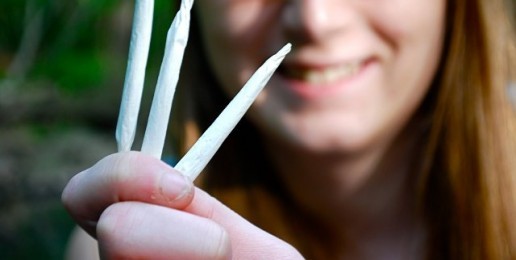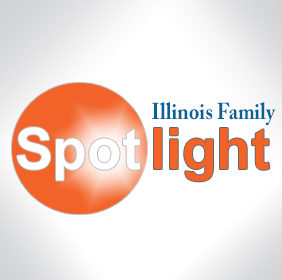
The Marijuana Policy Project, which is heavily funded by George Soros — the radically liberal billionaire from Eastern Europe — is pushing hard to pass medical marijuana legislation in Springfield. Thousands of robo-calls are being made into lawmakers’s offices in an effort to get 60 votes for this bill.
The issue of legitimizing the use of marijuana for medical purposes will encourage and increase destructive behavior in users. Marijuana is the most widely used illicit drug in the United States. Research has found that adolescent and teen drug use rises as the perception of harm diminishes. If marijuana is classified as medicine, marijuana use among youth would increase.
Take ACTION: Click HERE to send your state representative an email or a fax to tell him or her that you do not want marijuana sold in your neighborhood for any purpose. This is your chance to speak up before it’s too late and before it gets passed in the legislature!
SB 1381 creates the Compassionate Use of Medical Cannabis Pilot Program Act, which could be called for a vote at any time in the House. This bill passed the Senate last year by a vote of 30-28-1.
SB 1381 legalizes the growing of 6 marijuana plants and 2 ounces of useable cannabis for each “qualifying patient”. A person does not have to be dying or have a terminal condition to qualify for marijuana use as medicine. In states where marijuana has been legalized for medicinal purposes, it is indiscriminately being given to just about anyone for any health reason. It is even given to children with Attention Deficit Disorder.
SB 1381 allows an unlimited number of medical marijuana organizations (dispensaries) to sell to an unlimited number of qualifying patients.
California legalized medical marijuana in 1996. In late 2005 Los Angeles had four pot shops. One year later, there were 98. Today there are more marijuana shops in Los Angeles than churches — over 800. Legalizing medical marijuana would result in huge growing operations in neighborhoods statewide. Background checks are not required on personnel.
Background
Both the National Organization for the Reform of Marijuana and the Marijuana Policy Project want to legalize all marijuana. But the first step in their plan is to call it medicine. “The key to it is medical access, because once you have hundreds of thousands of people using marijuana under medical supervision the whole scam is going to be bought. Once there’s medical access…then we will get full legalization.” Richard Cowen, former director of the National Organization for the Reform of Marijuana.
Marijuana users have higher risks of numerous medical problems, including cancer, psychosis, strokes, respiratory damage and heart attacks. They increase these risks with increased use. Additionally, increased use will lead to more personal and family problems. Work productivity will decrease as will employability. Such outcomes will put additional pressure on families, communities, businesses, health services and law enforcement.
Legalization of medical marijuana will likely lead more people to try marijuana, especially impressionable, curious, young people, justifying that the government considers it safe. The prospect that more young people will begin a lifetime of drug addiction is deeply troubling.
Those who advocate its medicinal properties often do not mention the fact that marijuana’s pain-relieving ingredient has been available by prescription for years. Moreover, marijuana has multiple toxic chemicals which could interfere with the healing process, putting users at risk for developing additional problems.
Take action today! Contact your State Representative (217-782-2000) and ask him/her to vote NO on SB 1381 to legalize marijuana as medicine.
Read more:
IFI Video: Marijuana Addiction
Why We Should Not Legalize Marijuana (Dr. Robert L. DuPont)
Springfield man convicted of possession of more than 200 marijuana plants (State Journal-Register)
























